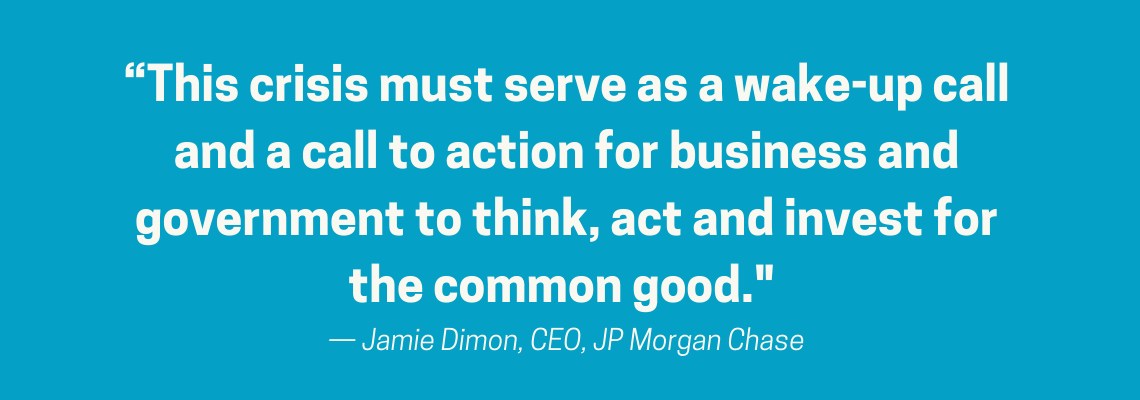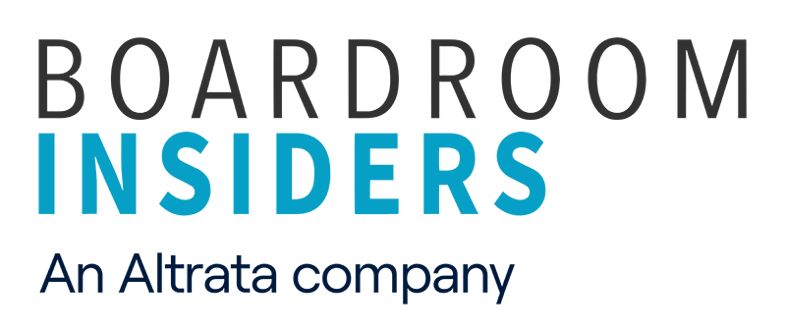2020 has been a year unlike any other. Between a sweeping pandemic, stay-at-home orders and rising awareness of social justice, the rate of change this year has been nothing short of remarkable.
For C-suite executives, there has never been a better time to lean into the skid. At Boardroom Insiders, we’ve been monitoring all the ways business leaders are reimagining corporate initiatives and values. These are the five biggest trends we’ve spotted as 2020 comes to a close.
Welcoming new roles and new faces
Similar to how the public sector taps experts for “czar” roles, it’s become increasingly popular for companies to recruit executives to own important, new initiatives. For instance, in the wake of mass protests, many companies have stepped up their commitment to improving diversity and social equity by naming chief diversity officers to their executive teams.
LinkedIn recently analyzed hiring data to determine which roles within the C-suite have seen growth in 2020. Chief diversity officer was the fastest growing title (84%), followed by chief growth officer (46%) and chief underwriting officer (43%), since driving opportunities and risk management have also been essential this year.
Going all-in on empathy and transparency
Gone is the age of ruling with an iron fist. In 2020, we’ve seen executives leading with compassion and taking a people-first and purpose-driven approach to business. Today, corporations are showing their human side, which is resonating with employees, stakeholders and customers.
Countless companies have enacted internal changes to help employees work from home and take care of children. Other developments have been public-facing. One example of this was Microsoft, which under CEO Satya Nadella, used its Twitter account to provide a platform for Black employees after the George Floyd protests. Some corporations elected to put their money where their mouth is and deposit funds in Black-owned banks.
For some executives, empathy is a conscious part of their leadership style, as evidenced by soon-to-be Citigroup CEO Jane Fraser who recently highlighted vulnerability as an asset in an interview with Fortune magazine.
Mastering the art of the ‘pivot’
When the COVID-19 pandemic reached critical mass around the world, executives sprang into action to help overhaul business models and value propositions. The pandemic — a black swan event if there ever was one — has provided executives with latitude to accelerate change.
At first glance, Airbnb seemed like the type of business to struggle mightily amid COVID-19. With tourism and business travel at a standstill, the vacation rental platform instead identified a wave of remote employees looking to capitalize on the shift as an opportunity to work from different locales. Recently, hosts began offering discounts for longer stays, and the company unveiled new “Online Experiences” to help locked-down customers satisfy their wanderlust, safely. To cap off the year, Airbnb is on track for its IPO.
Leaning into uncertainty
Uncertainty is often thought of as the kryptonite of business. After all, it’s hard to fathom launching new ventures in the face of risk. But many leaders see this uncertainty as a chance to question previous assumptions like corporate travel. Before 2020, business trips were a given. Today, Zoom calls have become a popular substitute, allowing travel budgets to be repurposed to preserve margins.
In other cases, remote work is prompting companies to stop travel but retain collaboration. In a McKinsey & Company blog post, new IBM CEO Arvind Krishna discussed the shifts in customer engagement. Today, IBM can connect multiple stakeholders from around the world to assist a customer.
“Now I can take two really smart people in Brazil, maybe four people in California and have them work with that customer,” Krishna said. “That’s probably far more expertise than the six people I had to fly into that one location.”
Collaborating with peers
In a Q&A with Reuters, Mailchimp CEO Ben Chestnut revealed his mantra: “Listen hard, change fast.”
Business leaders have taken that mindset to heart in 2020, and a significant number of them have compared notes and lessons learned. Executives are also paying close attention to the pain points of employees and customers.
“Over the past few weeks, I've personally spoken to almost 100 CEOs to share best practices, offer advice and often to take advice from them,” said David Solomon, CEO at Goldman Sachs in an April earnings call. “I'm broadly impressed by the private sector efforts to work together to help our communities navigate this crisis.”
What they’re saying
“Leaders have seen that their companies have been able to operate at an unimaginable pace and with so much resilience and creativity. Now they’re asking, ‘How do we hardwire these behaviors into the organization so that we are stronger in the years ahead?’” — Mary Meaney, Senior Partner, McKinsey & Company [November 2020]
“We positioned ourselves to be in a very strong and flexible position to adjust to anything that does change.” — Bill Wheat, CFO, D.R. Horton [November 2020]
"Approximately 2 months have passed since our last earnings call, yet there remains significant uncertainty about the ultimate impact of COVID-19 on society and global economies. Currently, governments are struggling to balance reopening and reengaging in an effective way against the maintenance of an environment that fosters the health and safety of everyone. No, there really is no playbook.” — Bob Rozek, CFO, Korn Ferry [September 2020]
"During this period of unprecedented usage growth and negative PR, as the CEO of the Zoom, I was also facing tremendous pressure, and I reached out to the high-tech community and received great support from fellow CEOs, and many of them are my mentors. And I can't thank them enough for their advice.” — Eric Yuan, Founder, President & CEO, Zoom Video Communications, Inc. [June 2020]
“This crisis must serve as a wake-up call and a call to action for business and government to think, act and invest for the common good and confront the structural obstacles that have inhibited inclusive economic growth for years.” — Jamie Dimon, CEO, JPMorgan Chase, [May 2020]
“Our response throughout COVID-19 has been guided by our purpose as an enterprise and shaped by these three principles: first, an uncompromising commitment to the safety of our employees; second, fighting the pandemic with urgency from all angles, including everything we're doing to help protect health care workers and first responders; and third, maintaining business continuity, executing actions to deliver for our customers and shareholders and to lead out of the economic slowdown.” — Michael Roman, CEO, 3M Company [April 2020]
Trending right now
- Developing and expanding self-service platforms
- Goal-setting for an even more digital 2021
- Streamlining management structures for greater efficiency
- Identifying merger and acquisition opportunities
- Forging new strategic alliances to capitalize on market trends
- Preparing for geopolitical transition in a new year
- Improving direct-to-consumer channels for holiday sales
Your Next Steps
We all need to be aware of how executive priorities are changing. Marketers should be focused on bringing the latest information to their account teams as it develops. Given that we employ a small army of really smart people to read and parse corporate earnings call transcripts and CXO interviews all day long, we can help by feeding you the latest.
What do you do with this information? Do what you have always done — align and support. Here are the four questions you should try to answer about all of your top accounts:
- How has their strategy/priorities shifted post-COVID-19?
- What are they cutting?
- Where are they investing--or doubling down?
- What can you offer that supports their current focus?






Share Your Thoughts